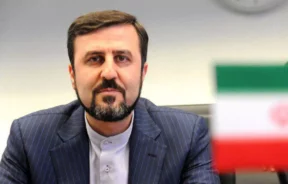BRICS Nations Embrace Iran’s Proposal on Non-Communicable Diseases
WANA (Oct 12) – At the 14th BRICS Health Ministers’ Meeting in Moscow, Iran’s Deputy Health Minister, Alireza Raisi, introduced a new proposal focused on combating non-communicable diseases (NCDs), which received widespread support from member countries, including Russia, India, China, and the World Health Organization (WHO).
Raisi emphasized the need for a shift in focus from adult care to prevention and treatment of NCDs in children. Highlighting the growing health challenges faced by children due to lifestyle changes—such as obesity, physical inactivity, earlier onset of diabetes, sleep disorders, and air pollution—he called for preventive programs to start early, including in schools.
The proposal garnered significant attention, and it was agreed that Iran would present a detailed proposal at the next BRICS meeting in Brazil, where it would be discussed as a primary agenda item.
Raisi also announced a scientific cooperation agreement with Russia, focusing on disease prevention, treatment, and pharmaceuticals. He mentioned Iran’s extensive experience in controlling tuberculosis (TB), which could be beneficial for Russia.
Additionally, he noted the successful implementation of artificial intelligence in one of Russia’s health centres, suggesting that Iran could learn from these advancements.
The Deputy Minister underscored the importance of BRICS countries cooperating to counter international sanctions. With BRICS representing about 40% of the global population, their collaboration could provide protection against external pressures.
Raisi also pointed out the substantial cooperation between BRICS members during the COVID-19 pandemic, particularly in vaccine development, and suggested that Iranian companies could invest in Russia’s pharmaceutical and medical equipment sectors.












